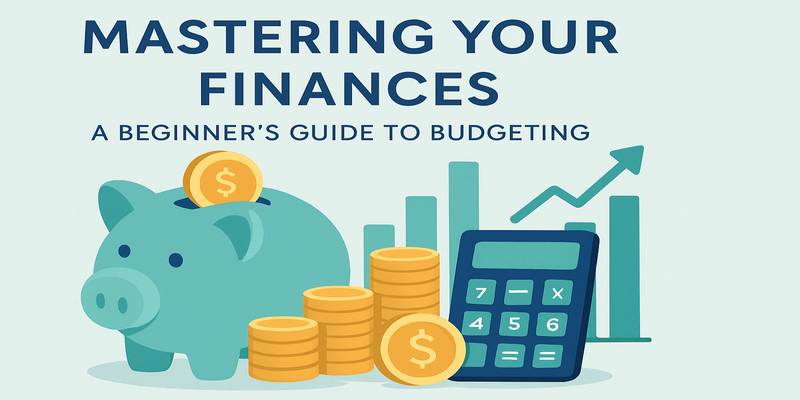Mastering Your Finances: A Beginner's Guide to Budgeting

In a world where financial uncertainty can feel overwhelming, taking control of your money is one of the most empowering steps you can take. Budgeting isn't about restriction; it's about intention. It's the process of creating a plan for how you will spend your money, ensuring you can cover your needs and wants while also working towards your long-term goals. This guide will demystify the budgeting process, providing you with practical steps to create a budget that works for you, helping you to build a stronger financial future. Whether you're trying to get out of debt, save for a down payment on a house, or simply feel more in control of your financial life, you've come to the right place.
The first step in any successful budgeting journey is understanding where your money is actually going. For one month, track every single expense, from your morning coffee to your monthly rent. Use a notebook, a spreadsheet, or a budgeting app like Mint or YNAB. At the end of the month, categorize your spending into groups like 'Housing,' 'Transportation,' 'Food,' 'Entertainment,' and 'Debt Payments.' You'll likely be surprised by what you find. This financial self-awareness is the bedrock upon which a solid budget is built, revealing the unconscious spending habits that might be holding you back.
Advertisement
Once you have a clear picture of your spending, it's time to create your budget. The 50/30/20 rule is a popular and effective framework to start with. Allocate 50% of your after-tax income to 'Needs'—essentials like rent, utilities, groceries, and transportation. Dedicate 30% to 'Wants,' which includes things like dining out, hobbies, and streaming services. The final 20% should go towards 'Savings and Debt Repayment.' This includes building an emergency fund, contributing to retirement accounts, and paying off credit cards or loans. Remember, this is a guideline, not a strict rule. Adjust the percentages to fit your personal situation and priorities.
A budget is not a 'set it and forget it' tool. It's a living document that should evolve with your life. Review your budget at least once a month. Are you sticking to your spending targets? Are there areas where you can cut back? Did an unexpected expense throw you off track? Regular check-ins allow you to make adjustments and stay on course. Life happens—cars break down, medical bills appear—and your budget needs to be flexible enough to handle these bumps in the road without derailing your long-term goals. Consistency is the key to turning your financial dreams into reality.